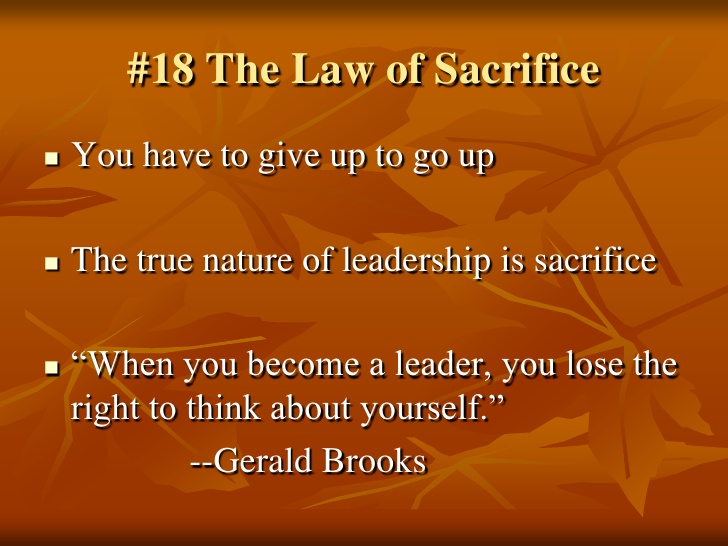Click here to return to Blog Post Intro
Leadership demands constant sacrifice. It is an ongoing process—not a one-time payment. While circumstances change from person to person, the principle doesn’t—a leader must give up to go up.
How did Moses make such great sacrifices to become a better leader? Let’s look at four key factors:
1. Moses was alone with God.
Had Moses stayed in Egypt, would he have listened when God called him? Who knows? But Moses’ exile in Midian gave him 40 years of reflection time. When God appeared to him in the burning bush, Moses had grown quiet enough to hear God’s voice.
Oftentimes, we take too little time to get alone with God, and we have a hard time hearing his voice in the hustle and bustle of daily life. If you can relate with that, change your habits and set aside time to be alone with God. Don’t force God to send you to the desert to get your attention!
2. Moses was honest with God.
By the time Moses met God at the burning bush, there was no trace of the pride and cockiness characteristic of his life in Egypt. He knew his weakness. When God told Moses his plan, Moses replied, “Who am I?” (Exodus 3:11). Only as an older man, humble before God, could Moses be of any use to God.
I read recently that we generally have two choices in life: humility or humiliation. As Solomon writes in Proverbs 11:2, “When pride comes, then comes disgrace, but with humility comes wisdom.” We can let pride guide our decisions or behavior. When we do, humiliation usually follows. Or we can remain open and teachable, as Moses was in his encounter with God.
3. Moses was hungry for God.
What does it take for you to be really hungry for God? For Moses, it took four decades in the wilderness. Could Moses have given up all hope of doing something worthwhile during that time? Absolutely. It’s important to recognize that we can’t be staunchly self-reliant and hungry for God at the same time.
4. Moses was broken by God.
God did not force Himself or His will on Moses. God waited for Moses to willingly come to Him (Exodus 3:4). Once Moses turned to God, he could be broken. Brokenness involves:
- Removing inappropriate pride and self-reliance
- Building healthy God-reliance
Moses dealt with several fears in his encounter with God:
- Fears concerning himself. Moses doubted his own value (Exodus 3:11). God assured Moses of his purpose.
- Fears concerning God. Moses feared who God might be. God responded by overwhelming Moses with His presence.
- Fears concerning others. Moses then worried about how God’s people would respond (Exodus 4:1)—hadn’t they already rejected him? God responded by demonstrating His power and commitment.
- Fears concerning his ability. Moses doubted himself—both his speech (Exodus 4:10) and ability (v. 13). God responded by providing him a partner, his brother Aaron.
With his willfulness broken, his fears overcome, and his purpose reaffirmed, Moses finally placed himself in the hands of God.
Life is filled with trade-offs—but you can only trade up if you have something to sacrifice. Moses had to sacrifice his status and material possessions to get prepared for his life purpose.
If you desire to lead—if you hope to find and fulfill the purpose for which God created you—then you must have something to give. What price are you willing to pay to become a more effective leader? Rest assured, it will require sacrifice…


